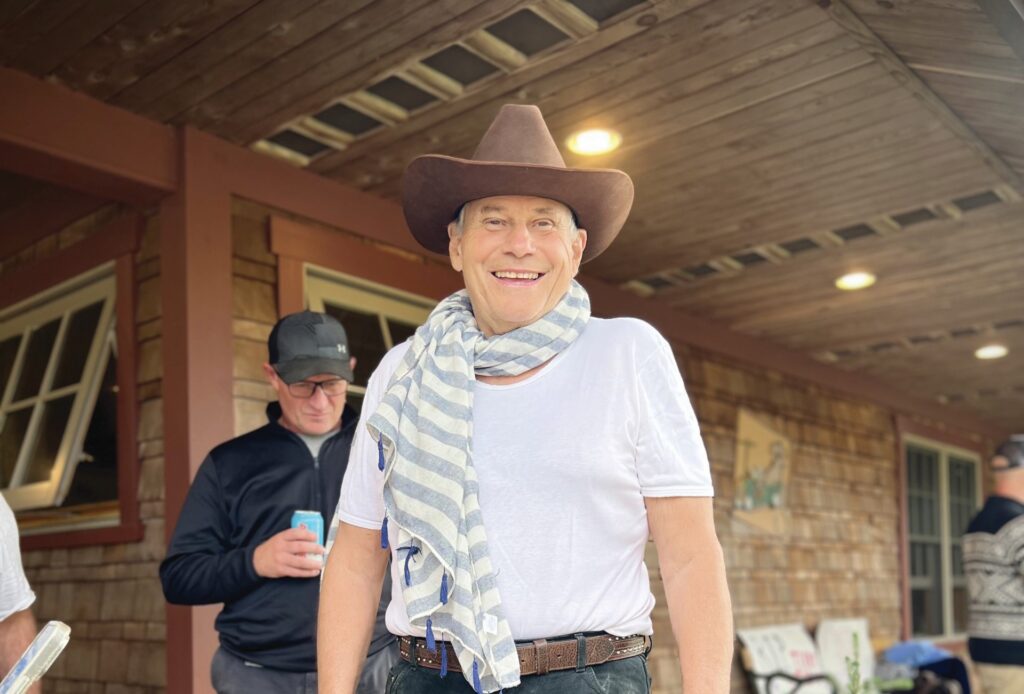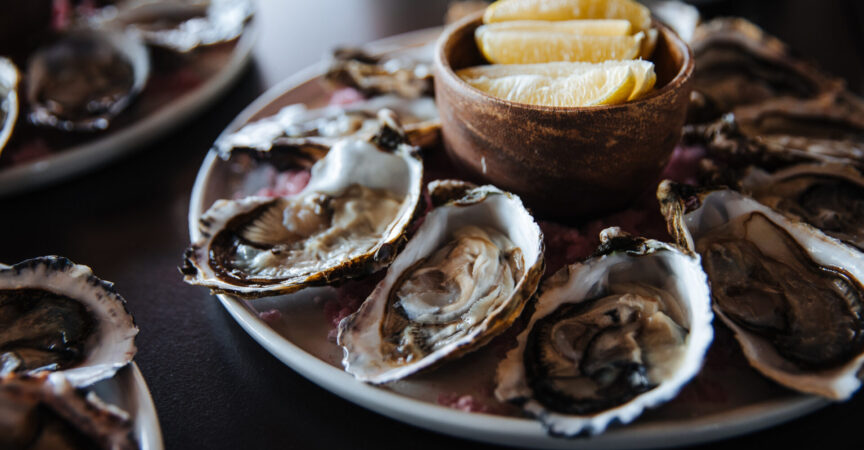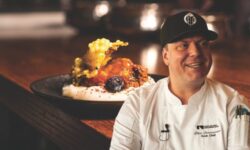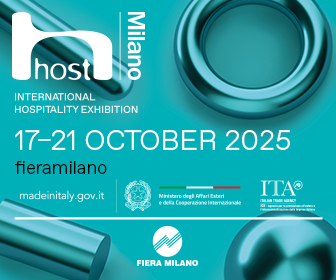“Serve a good person a good oyster, and you’ll have them for life.”
Before heading over to PEI’s International Shellfish Festival, Anna Pham reconnected with Rodney Clark, Canada’s Oyster King, her previous boss and lifelong friend.
In the heart of Toronto’s bustling culinary scene, down a set of stairs, there is a hidden treasure that has been shucking its way into the hearts of city dwellers and visitors for an astonishing 37 years.
Rodney’s Oyster House is more than just a restaurant; it’s an ongoing epic whose first volumes were written by one man, who would probably cringe to say that’s true. Rodney Clark’s first business mistake was believing that he could do it himself, but when he learned to see the value in every person he met along the way, he found the secret to success. I had the privilege of meeting this artist-turned-restaurateur when I took on a job at Rodney’s back in 2013. Fresh out of school with the itch for opening my very own restaurant one day, I walked into four years within an establishment that has completely pivoted my career and the way I approach life.
This past August I decided to take a seafood-inducing trip to the east coast. The first person I thought of was Rodney. I had the intention of stopping by for a charisma check, but knew that I would not leave without some sage words of wisdom to carry with me through this life and beyond. With one text to his daughter Bronwen Clark, now operator of ROH, I was welcomed with open arms.
I wish I could share with you the amount of warmth and peace I felt when I sat next to Rodney, both of us comfortable in two cushioned rocking chairs. The window next to us reveals a backyard leading to red sand and a briny, seaside breeze. I might’ve been on drink number three by then, and he was coughing more than usual. In true Rodney humour, he follows his coughs with “This will be the last interview I ever do…” *fakes death* “…and collapses in front of her…and Anna Pham will have a story of a lifetime.” I will refer to Rodney as “Rodney” in this article, rather than “Clark” as this was a conversation was between two humans who have made some sort of impact on each other, rather than two strangers in a formal interview.

Our conversation that day was all over the map, but always came back to one thing: that the not-so-secret sauce for a fruitful “food idea or business” contains two key ingredients: the product you back and the people you keep.
Unlike me, Rodney never envisioned himself as a restaurateur. The oyster kind of brought him there. Anyone who worked at ROH knew that in the mid-80s, Rodney had boxes of oysters coming off the back of a truck, sent by his dad all the way from PEI. Beyond being an artist, he also wanted an excuse to connect. He would bring oysters to affluent homes, shucking privately for folks who knew what an oyster was while building new relationships that would soon help pave his way to “The Oysterman” empire.
He recalls early days and early learnings with typical honesty and candour. “I started delivering to private homes because these people knew what good oysters were and then they would say, “Hey—my daughter is getting married on the weekend, can you come open some?” And then the catering came in, and I didn’t know what that meant. I would charge $20 and a bottle of wine… and then I would write their name on each bottle. And when you look at the bottles, you can see where it came from.”
One contributor to his wine collection was Lady Eaton. Rodney tells me, “Mrs. Eaton would never go down the basement into her cellar. She had a butler whose name was Simpson that would head down and pick out one of her finest for me. Could you imagine that every morning? Greeting a Simpson? “How are you doing Simpson?” I met all these people that way and I wasn’t trying to sell them something; I was trying to introduce them to a good oyster. So, I worked at it that way and that was how it started. Then, the catering chef hired at the events would say “Boy, I don’t get oysters that good…I’m not getting those in my restaurants…Do you want to send some to me?” and so I started connecting with chefs to bring them oysters.”
With an investment from a woman named “KVO”, Rodney went from a refrigerated truck driving to West Virginia to do catering to finding himself opening of a humble oyster bar in Toronto in 1987. As with many operators’ stories of the ups and downs of openings, not much has changed. If you look up articles from these early days, one from the Toronto Star from December of that year notes early struggles and opening delays, followed by an impeccably timed government ban on the sale of shellfish, including oysters.
When I ask where he feels operators should look for inspiration and the state of the industry, Rodney’s frustration as a maverick Canadian operator lingers. “I have to look at other countries. The bureaucracy in the government of Canada—there are too many people with a salary involved in government bodies and policies to uphold—will squash a young person’s food idea real fast.”
On Operations
With just 11 seats at the bar, two tables of four, and a high top, Rodney was fresh into the restaurant business. He often says with a full heart that he owes the success of his business to KVO and Ann-Marie Celestine, his partner and business manager at Rodney’s Oyster House; two women with unbeatable business management brains. He offered me a few tips he inherited from them: “You have to make controls or people will run right over you.” and, “Trace every cent we spent on an oyster. What steps were involved, and how much did those steps cost?”
After so many years in the restaurant business, Rodney has some wisdom of his own to dispense:
“You have to have bums in seats and you have to move them three times a day. The first flip is for the operation, the second flip is for the cost of the operation, and the third—and there might be some—is for you.”
He also notes that there is much to be observed and learned about the success and operational health of a restaurant by taking a look at what’s left on customer plates. “The dish pit is the most important place. I always walk into the dish pit and think: What food is coming back? How much food is coming back? Why aren’t people eating all the rice sides? You can tell how your restaurant is working by going to the dish pit. You don’t have to go to the accountant. It’s right there before your very eyes.”
On Planet
Rodney’s east coast lifestyle and perspective inherently translated into his restaurants before “sustainability” was even a buzzword. Farmed oysters take the pressure off wild oyster populations, satisfying consumer demand without further depleting ocean stock. They also help seed wild oyster populations, feed marine life and clean ocean water. “The start of it all is the oyster,” he asserts. “Bivalves like oysters, if farmed expertly, can have a net positive environmental impact. The ecological benefits of oyster agriculture are numerous, starting with a growing process with almost no greenhouse gas emissions and uses little water, feed, fertilizer, or food, all the while providing high protein,
high zinc, and high magnesium!”
Creative and forward-thinking, Rodney elected not to use plastic or paper gift cards. Instead, he took his artistic skills to the table and handmade every single one on the inside of an oyster shell. “I thought: Why don’t I give them a painted shell they can put up on their shelf and stare at for six months before bringing it in to use? The memory of this shell reminds them of the satisfaction, and it leads them to the next step with you. It’s the satisfaction that comes from going above…which will have them come back to you. Anything good in life, should come back. If not, cut bait.”
Rodney also believed in protecting the water oysters (and his livelihood) live in. He started the Ontario Oyster Festival, a massive seafood festival and fundraiser in the heart of Toronto that lures people in for a day of oyster slurping and icy vodka luge shots. Held in the alley beside ROH, Rodney’s intent was to cover the operating costs to make sure the donation was maximized. “We cover operating costs—a third of the money perhaps—and we donate the rest to an environmental group where the water ends up. We’ve done environmental defense for many years. I recently went to a small group in Halifax called Ecology Action and they’re doing incredible work.”
Rodney’s approach shows that being sustainable isn’t just about ethics; it’s also about being creative and genuine in securing a restaurant’s profitability, reputation and relevance in an ever-changing industry.
On People
Beyond and above Rodney’s balance sheet are the people. Not his clientele, but the people on his team. “I always said, “You work with us, not for us.” I try to instill the fact that you service guests with “What would you like?” vs. “This is the menu.” If there are any questions, I try to answer them or get them answered. I try to find some bond with my team to make it interesting.”
Rodney is great at forging this bond. When I was employed with ROH, my aunt in Vietnam owned a quail egg farm and a bad virus came through and wiped out half her quails. This was her livelihood. Rodney not only found a newspaper clipping that addressed the virus, he also sent my aunt money in VN currency as a way of providing a bit of support. To him, the gesture may have been small, but for me, it set a standard for future employers and for what it means to be a leader and a full human. There are staff members who have been there for 20+ years and, while the money is good, I’m sure it’s not just because of the money.
The Sri Lankan folks in the kitchen often told me about a story Rodney likes to share with them about the statue of George Pope. George was the cousin of James Pope who was Premier of PEI from 1825-1885. He was a PEI-born Tamil scholar known for his contribution to translating the bible into Tamil and also for translating several important Tamil-language texts, some of which influenced the teachings of Gandhi. It was a wondrous thing to hear, and many Christian Sri Lankans would visit PEI to honour said statue. This was Rodney’s way of connecting with people.
As an industry, we want to believe that every operator will always lead with their heart. Before we headed over to the Canadian Oyster Shucking Competition together, I wanted to share with Rodney my observations on the current state of foodservice. Operators are losing their passion, they’re dealing with labour shortages…there’s inflation and there’s the aftermath of a pandemic. If Rodney’s 37-year-old self decided to open up an oyster house today, what advice would he give to this young and vivacious, hopeful entrepreneur?
“Every morning, look at joy and happiness. The other things are a part of business. They pick up their momentum by you worrying about them, so just do your best job. Pay your bills, know your work, and enjoy it. It’s a riot. It’s a true fun experience, making sure that people have what they want. You’ve got to find what you want to do, whether it be selling fudge, ice cream or oysters.”









